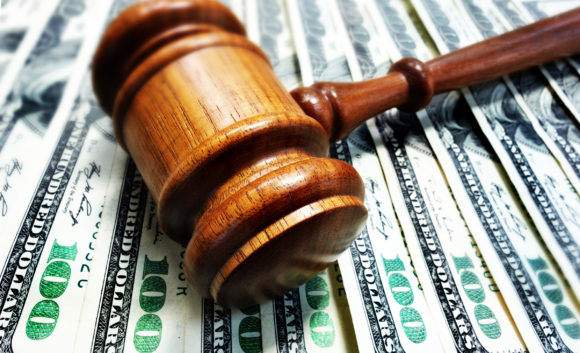A plaintiff seeking compensation for damages is entitled to submit the full amount on medical bills related to his injuries as evidence even though he did not pay the full amount of those bills.
The U.S. district court for New Hampshire was asked to rule on the matter before the start of a trial on the allegations of excessive force brought by Warren Picard against the Nashua police department and officer James Ciulla.
Picard alleges that Ciulla violated his Fourth and First Amendment rights by twice smashing his head against the police cruiser while Picard was handcuffed and asking why he was being arrested. Picard claims the actions caused him severe injury.
Picard’s complaint says that he “suffers from the disease of alcoholism and can get mouthy as he was on the evening in question. Nonetheless, whatever misdemeanors he committed while walking and drinking did not justify the use of force” that resulted in injuries to his head, the complaint maintains.
The medical bills total approximately $8,117.43, and Picard seeks compensatory damages for the total.
Officer Ciulla, however, maintains the complete bills are misleading as to damages because Picard did not pay them in full. Rather, the medical providers accepted a partial payment from the state in satisfaction of the bills. Thus, Ciulla argues, Picard should not be permitted to introduce the bills as relevant evidence of his compensatory damages. Ciulla wants evidence of “medical bills beyond those actually paid by or on behalf of” Picard excluded from trial.
Noting that in New Hampshire a plaintiff is entitled to recover as compensatory damages the reasonable value of past and future medical services caused by a defendant’s wrongful acts, U.S District Judge Landya McCafferty denied Ciulla’s request because she found that “the risk of unfair prejudice or of misleading the jury about the issues does not substantially outweigh the probative value” of Picard’s medical bills in assessing damages.
The judge said the difference between the amount paid by the government and the amount billed does not deprive the bills of their relevance as to the reasonable value of the medical services provided, nor does it demonstrate as Ciulla claims that the bill amounts are “fictional” numbers.
“Someone still paid for the provision of these services. That economic truth does not change merely because the provider was unable to secure full compensation for its services in the context of the transaction. Rather, the provider’s act of forgiveness (whether legally mandated or altruistic) only shifts the person or entity who is responsible for paying the cost,” the judge wrote.
The judge acknowledged that permitting Picard to recover more than he paid will likely result in a windfall for him if he prevails, thus violating an underlying principle of compensatory damages which is to make the plaintiff whole, no more and no less.
However, the court said it is important to remember that if he is found liable, Ciulla’s actions were still the cause of Picard’s use of those medical services, whether the cost was paid for by Picard, an insurer, the taxpayers, or a medical provider.
While Picard may not deserve it under the general principles of compensatory damages, the collateral source doctrine dictates that such windfall should not fall to the tortfeasor, which means it would instead fall to Picard. It would not be unfair to Ciulla to require him to pay such damages since he is the one who allegedly caused them, the court reasoned.
In short, Picard’s medical providers forgave the medical bills, which was a “collateral benefit” to which the law assigns Picard priority over Ciulla.
Moreover, according to the judge, the alternate approach advocated by Ciulla would “obfuscate the full cost of his alleged wrongdoing behind the screen of insurance contracts and taxpayer-funded benefits.”
The judge opined that the legislature could enable a third party such as the medical provider or the state to recover the value of the services from Picard if he prevails. But as of now, the state’s policy is to permit the plaintiff to retain the recovery. “The court must follow that choice in this case,” the judge concluded.
The judge also noted that during trial Ciulla is free to introduce evidence about how the bills were calculated in order to undermine their presumptive value as evidence of the reasonable value of the medical services received by Picard.
Topics Law Enforcement
Was this article valuable?
Here are more articles you may enjoy.



 Insurance Issue Leaves Some Players Off World Baseball Classic Rosters
Insurance Issue Leaves Some Players Off World Baseball Classic Rosters  Experian Launches Insurance Marketplace App on ChatGPT
Experian Launches Insurance Marketplace App on ChatGPT  Kansas Man Sentenced for Insurance Fraud, Forgery
Kansas Man Sentenced for Insurance Fraud, Forgery  Insurify Starts App With ChatGPT to Allow Consumers to Shop for Insurance
Insurify Starts App With ChatGPT to Allow Consumers to Shop for Insurance 

